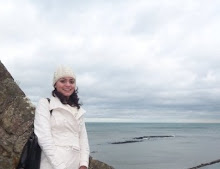
So while working on my final paper I have reread The Four Quartets numerous times each time I do i find that i both understand a little more and am much more confused. I think this is the type of poem that someone could spend their whole life studying and possibly still never completely understand everything that it is saying. So during a lat night rereading i started to think about the question Dr.Sexson asked us on the first day of class- When is the epiphany in this poem? I suppose i would like to possibly change my answer now to say that I'm not sure the epiphany is a moment but i am starting to think that maybe in this poem it is a place, the rose garden in specific. In Burnt Norton it seems like the rose garden is that moment of timelessness (that still point- in case Jennie Lynn reads this) where memory takes us. the line " I can only say, there we have been: but I cannot say where/ And I cannot say how long, for that is to place it in time" makes me think of this moment in time where time does not exist, like during epiphanies where time seems to go by but in fact it remains still. And in my topic of memory the rose garden seems to be the place of possibly remembering what we have forgotten, when we are first introduced to the garden we are led there by our memory: "footfalls echo in the memory/ Down the passage which we did not take/ Towards the rose-garden" The bird then also leads us into the rose garden with the line "other echoes/Inhabit the garden. Shall we follow them?/ Quick , said the bird, find them , find them" All these various echoes seemed to me to be sort of like a collective conscious or a collective memory. Or now that i write this maybe the rose-garden is the realm of memory, or maybe it is the realm of epiphany, or maybe they are one in the same. Maybe i should get back to my paper before i confuse myself even further.

oh wow! thanks, abby. I was just hitting a wall and this helps me move on to something else.
ReplyDelete